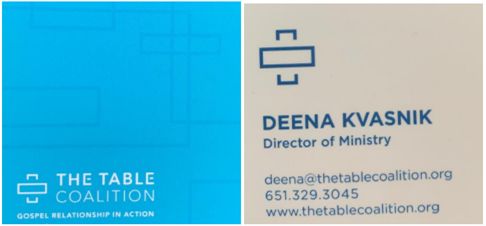Unlike traditional trademarks or services marks, collective membership marks do not indicate the source or origin of specific goods and/or services. See 15 U.S.C. §§1054, 1127. Rather, as the name suggests, they are used by members of an organization to indicate membership or affiliation with a particular group. Importantly, to show use of the collective membership mark in commerce, the owner must submit a specimen demonstrating use of the mark by its members. Use of the mark by the owner is insufficient to prove use in commerce. Specimens acceptable to demonstrate use of collective membership marks vary and can range from lapel pins and membership cards, to motorcycle club backpatches.
In In re Mission America Coalition, Serial No. 90019480 (TTAB 2023), Mission America Coalition ("MAC"), dba The Table Coalition, applied under Trademark Act Section 1(a), 15 U.S.C. §1051(a), to register THE TABLE COALITION as a collective membership mark under "to indicate membership in a group of church leaders, senior church members, ministers, independent evangelical preachers, and other evangelical principals to promote and support evangelistic activities[.]" The specimen submitted with the application consisted of two images comprised of the front and back of a business card.
In refusing registration under Trademark Act Sections 1, 4, and 45, 15 U.S.C. §§1051, 1054, 1127, the Examining Attorney argued that the specimens showed use of THE TABLE COALITION by the parent organization, rather than by members of the organization. In support of registration, MAC submitted a declaration of its director of ministry who averred that she is responsible for soliciting, recruiting, and retaining members. The declaration included a blank meeting agenda featuring THE TABLE COALITION prominently at the top of the agenda. After the refusal was made final, MAC appealed to the Trademark Trial and Appeal Board ("TTAB").

In affirming the refusal, the TTAB focused on the commercial impression of MAC's business card specimen. The TTAB noted that the business card displayed the mark THE TABLE COALITION on one side with the director of ministry's contact information on the other. In addition, the business card indicated that the director of ministry held a position with the organization. The presentation of THE TABLE COALITION mark alongside contact information and the director of ministry's title pointed to the organization itself, rather than indicating membership in THE TABLE COALITION. In other words, consumers encountering the business card would be more likely to view THE TABLE COALITION as the source of services, rather than indicating membership in a particular organization.
The TTAB found the declaration and blank meeting agenda further supported its conclusion that THE TABLE COALITION was not used as a collective membership mark. Notably, the declaration of its director of ministry did not aver that she is a member of the organization. Moreover, the blank meeting agenda showed use of THE TABLE COALITION by the organization during its member meetings, rather than use by the members themselves.
Because the specimen and supporting evidence suggested use of THE TABLE COALITION as a service mark rather than a collective membership mark, the TTAB affirmed the refusal to register.
The case is In re Mission America Coalition, Serial No. 90019480 (TTAB 2023)
The content of this article is intended to provide a general guide to the subject matter. Specialist advice should be sought about your specific circumstances.

